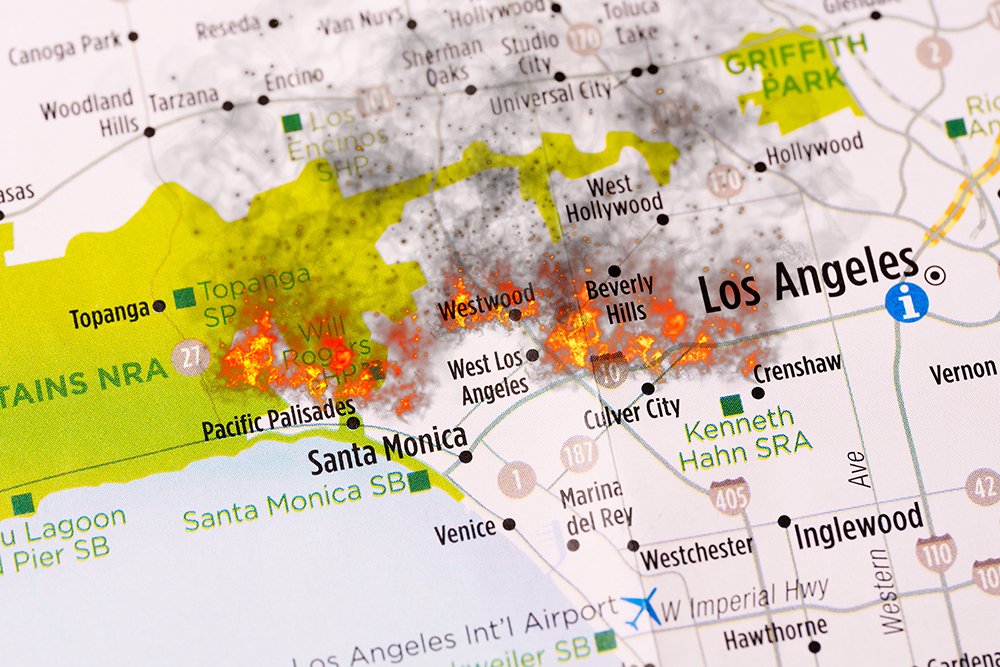The presidential inauguration in the Capitol rotunda on Monday marked the return to power of the most controversial and scandal-plagued president in American history. It felt a little like when the second plane hit the tower on 9/11 — the moment when we knew it wasn’t an accident.
Monday was also Martin Luther King Jr. Day, and here in Memphis — the city where Dr. King was assassinated in 1968 — the celebration of his life takes on a special significance. The NBA’s annual MLK Day celebration featured the Memphis Grizzlies hosting the Minnesota Timberwolves, and the National Civil Rights Museum held a day of events called “Community Over Chaos,” which seemed a most fitting theme.
But before it fades into history, buried by the noisy deluge of Trump drama, I want to take note of former President Biden’s farewell address of last week. As might be expected, he cited the achievements of his administration — the record job-creation numbers, the long-desired ceasefire in the Middle East, the strengthening of NATO, and the ongoing resistance to the Russian invasion of Ukraine — but his real purpose in his speech seemed to be to deliver a warning, to address, as he said, “some things that give me great concern.”
Citing President Dwight D. Eisenhower’s farewell address to the nation, in which he warned the country about the dangers posed by the “military industrial complex,” Biden decried the rise of a new threat, one he called the “tech industrial complex.”
“Americans are being buried under an avalanche of misinformation and disinformation enabling the abuse of power,” Biden warned. “The free press is crumbling. Errors are disappearing. Social media is giving up on fact-checking. The truth is smothered by lies told for power and for profit.” No errors detected.
The tech industrial complex was on full display in the Rotunda on Monday, including Sundar Pichai (Google), Tim Cook (Apple), Jeff Bezos (Amazon, The Washington Post), Mark Zuckerberg (Meta, Facebook, Instagram, Threads), and Elon Musk (X, Tesla, Starlink, xAI).
Never have so few had so much unbridled power to influence public opinion and so much money to invest in doing so. And it doesn’t help that they’re supplicating themselves (and giving millions of dollars) to the new president to curry his favor. It’s called obeying in advance, and it’s worrisome stuff. Journalism is in danger of being put out of business by “content providers” that have no ethical qualms about ignoring the truth in favor of whatever makes a profit — or makes the president happy.
CNN, ABC, and even MSNBC have also made at least token moves to ameliorate relations with the new administration. CNN buried Trump critic Jim Acosta in a late-night slot. ABC settled a libel lawsuit with Trump that it easily would have won in court. Facebook eliminated fact-checkers. Companies are getting rid of diversity hiring programs. Macho (“masculine energy”) is all the rage among the tech bros. Women’s healthcare rights continue to be eroded in red states.
Biden called it “a dangerous concentration of power in the hands of a very few ultra-wealthy people,” and cited the consequences “if their abuse of power is left unchecked.” What Biden was describing is an oligarchy. Merriam-Webster (remember dictionaries?) defines it as “a government in which a small group exercises control, especially for corrupt and selfish purposes.”
Can there be any doubt that an oligarchy of extreme wealth, power, and influence is moving into power in the United States, one that threatens our democracy and our basic rights and freedoms?
Democracy depends upon the will of the people, and if the people are misinformed, disinformed, or uninformed, they can be manipulated. As we well know, public opinion — and elections — can turn on well-funded, broadly circulated lies and propaganda.
Our social media platforms are already permeated by disinformation, mostly via bots that skillfully imitate real people and overwhelm legitimate content by their sheer numbers. Artificial intelligence is now upping that deception to previously unknown heights. Biden called AI “the most consequential technology of our time, perhaps of all time.”
The former president concluded by saying to his fellow Americans, “It’s your turn to stand guard. May you all be the keepers of the flame.” That doesn’t feel like malarkey, folks.









